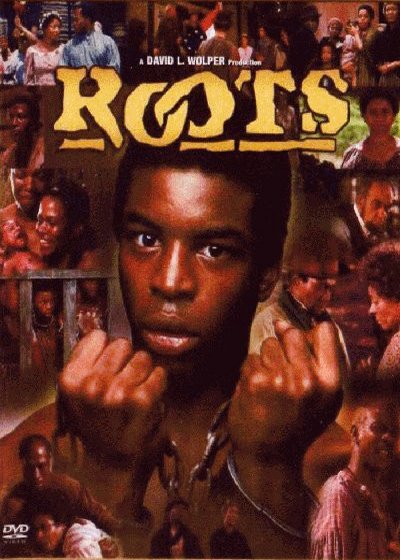The Roots Legacy
 With all the talk these days about the Steve McQueen film 12 Years a Slave it is readily apparent that critics and reviewers alike proclaim this the most important mainstream media effort to portray American slavery from the perspective of a slave. Fair enough. And allow me to pause for a minute and give credit where credit is due. I think 12 Years a Slave is an important work - it explores the life of a free man suddenly thrust into involuntary servitude. It captures several of the nuances of paternalism in a slave society along with the brutalities of the system that one might expect from a film about slavery.
With all the talk these days about the Steve McQueen film 12 Years a Slave it is readily apparent that critics and reviewers alike proclaim this the most important mainstream media effort to portray American slavery from the perspective of a slave. Fair enough. And allow me to pause for a minute and give credit where credit is due. I think 12 Years a Slave is an important work - it explores the life of a free man suddenly thrust into involuntary servitude. It captures several of the nuances of paternalism in a slave society along with the brutalities of the system that one might expect from a film about slavery.
But to suggest that this film is the most important mainstream media event may be something of a leap. In January 1977, for eight successive nights, ABC Television aired what I feel is the most important media event concerning American slavery to date. Roots, the television miniseries, enthralled a vast cross-section of Americans - the viewership transcending race, ethnicity, and economic demographic. The final episode alone received a 71% ratings share with over 36 million tuning in. And all this on the heels of some of the most heated racial conflict the nation had ever witnessed.
Roots was based on Alex Haley's 1976 true-to-life novel tracing his personal family history, Roots: the Story of an American Family. It tells the story of Mandinka warrior Kunta Kinte, his capture and sale into the Atlantic slave system, and his descendents through the Civil War period and emancipation. Critics praised the series, and it received many well-deserved accolades. Most importantly, Roots told a story from the slaves' perspective - and it did so for a nation of viewers.
Haley's book has since come under intense scrutiny. For one, accusations of plagiarism hounded the author - many noticed the striking similarities between the book and a 1960s publication called The African. Further, there was and still is speculation that Haley fabricated much of his evidence concerning his specific West African origins. Regarding the television series, critics in time began to chip away at the show's analytical bent, suggesting it relied too heavily on brutality and that it lacked historical depth - especially concerning the slave South's paternalistic system.
Without question, the series had flaws. But that is far less significant that what it actually accomplished: the series confronted an institution before a nation. In terms of popular culture, the story of American slavery was suddenly in 36 million living rooms - a topic of conversation and of further inquiry.
12 Years A Slave is part of a cultural legacy that Roots most profoundly set in motion. Yet few people talk about it today. It's cultural resonance seems only slight in comparison to other works. Most of my students, in fact, have never heard of it. Which is a shame.
With compliments,
Keith